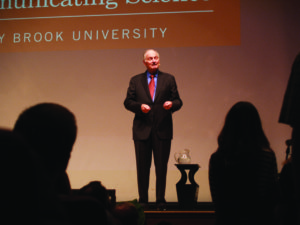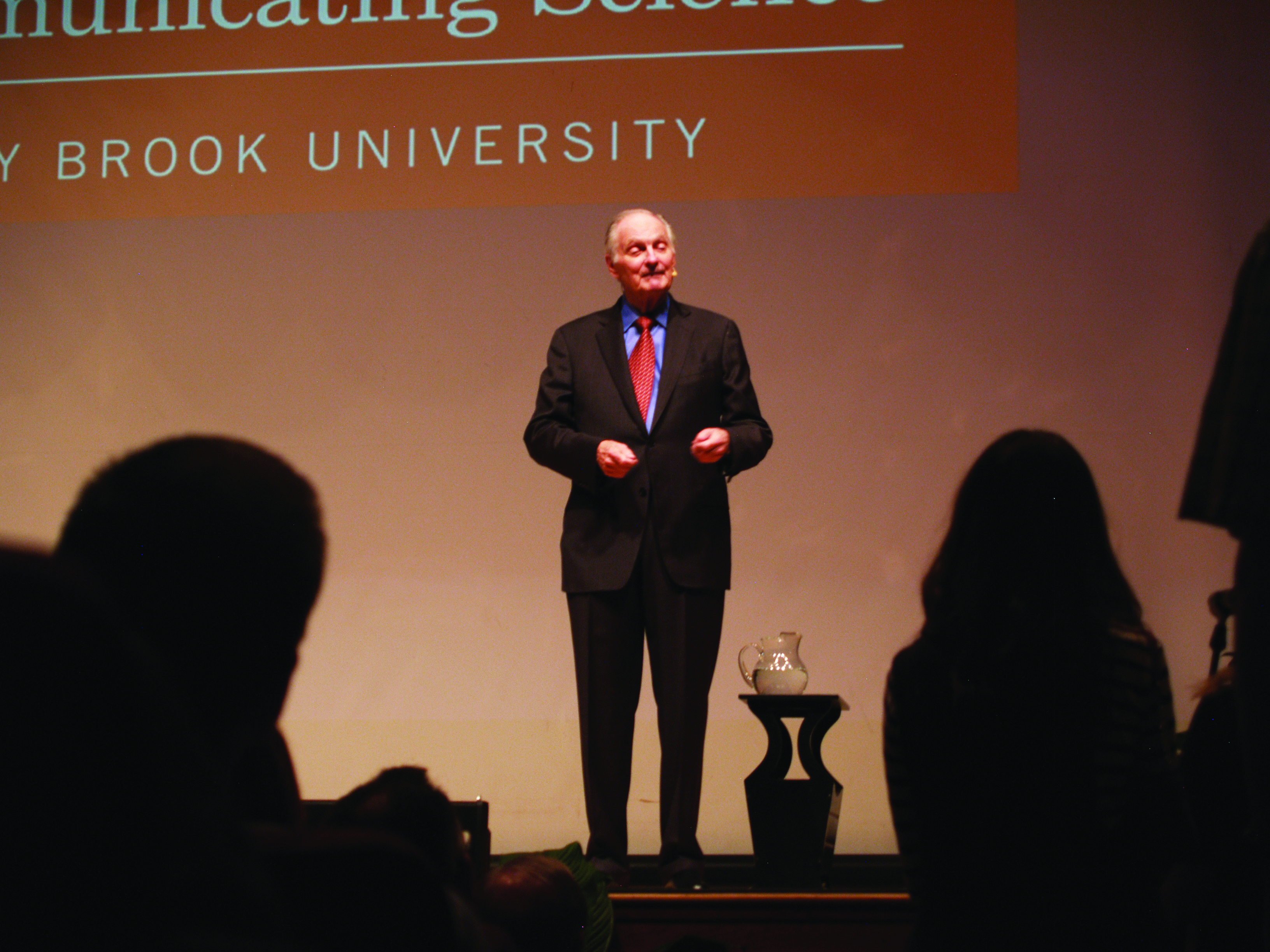Through early morning fog I see: Alan Alda and science communication

The University of Tennessee is very large, several times larger than Maryville, and thus is able to bring in lecturers of which we can only dream. One of these lectures was beloved actor and science communication enthusiast Alan Alda.
Alda became famous for his role in the beloved television sitcom “M*A*S*H,” which chronicled the efforts of a group of Army doctors in the Korean War trying to maintain their sanity (usually in a comedic way) amongst the horrors of war.
Since “M*A*S*H,” Alda has done numerous other projects, most of them related to science and the art of communicating effectively as a science. The lecture he gave at UT was in direct relation to this, and as a member of the Highland Echo team, I was able to attend the media pre-interview and meet Alda face to face.
The first thing one notices about Alda is that he is very tall—at least six feet, and age hasn’t softened his wit. As television crews attached microphones to his lapels, he joked that since he was wired he might as well bust the local Mafia.
The questioning period began and news crews asked about various things from the topic of his lecture to questions about “M*A*S*H,” which Alda answered thoroughly and thoughtfully. His lecture would pertain to the art of communication and how it’s underused in the fields of science and medicine.
Alda continued on how effective communication in these areas can bring about better public understanding of how science impacts the day-to-day lives of everyone. He also stressed that everyone, including scientists, have stories to tell, and that people enjoy listening to stories.
I eventually asked about the Internet, and how it has changed the way communication has occurred. Alda responded to me by saying that the Internet teaches us to be skeptical.
He explained that many things on the Internet may be untrue which is especially true in light of the recent election and the “fake news” epidemic. He explained that we have to fact-check and examine how thorough new studies are when they show up on the Internet, as it’s a forum where anyone can say anything, essentially.
The Q&A period ended, and I returned an hour later when the lecture would begin in earnest. The lecture hall itself was massive, and it soon filled to the point where many people had to stand rather than sit. After the introductions, Alda walked on stage and was greeted by thunderous applause before diving into his lecture.
The main takeaway from his lecture, and indeed the work he’s been doing for many years now, is that scientists need to do a better job communicating their message as what they say has the capacity to influence the future of humanity.
He claimed the main problem most scientists have is what he called “The Curse of Knowledge,” that is, knowing something so well that you forget what it’s like to not understand it. The cure for this curse, he said, was empathy and good storytelling skills.
He explained that most people don’t have a good understanding of extremely specific scientific language, but they do understand anecdotes and analogies. He stressed the importance of telling a story, rather than simply reporting findings, as this will engage the common man to a much greater extent.
As his lecture ended, he received a standing ovation and bowed numerous times in an almost comedic way. The entire thrust of his lecture could be summed up by something he said during the Q&A period: “Good communication is Paramount. It’s also Universal and Warner Brothers.”

